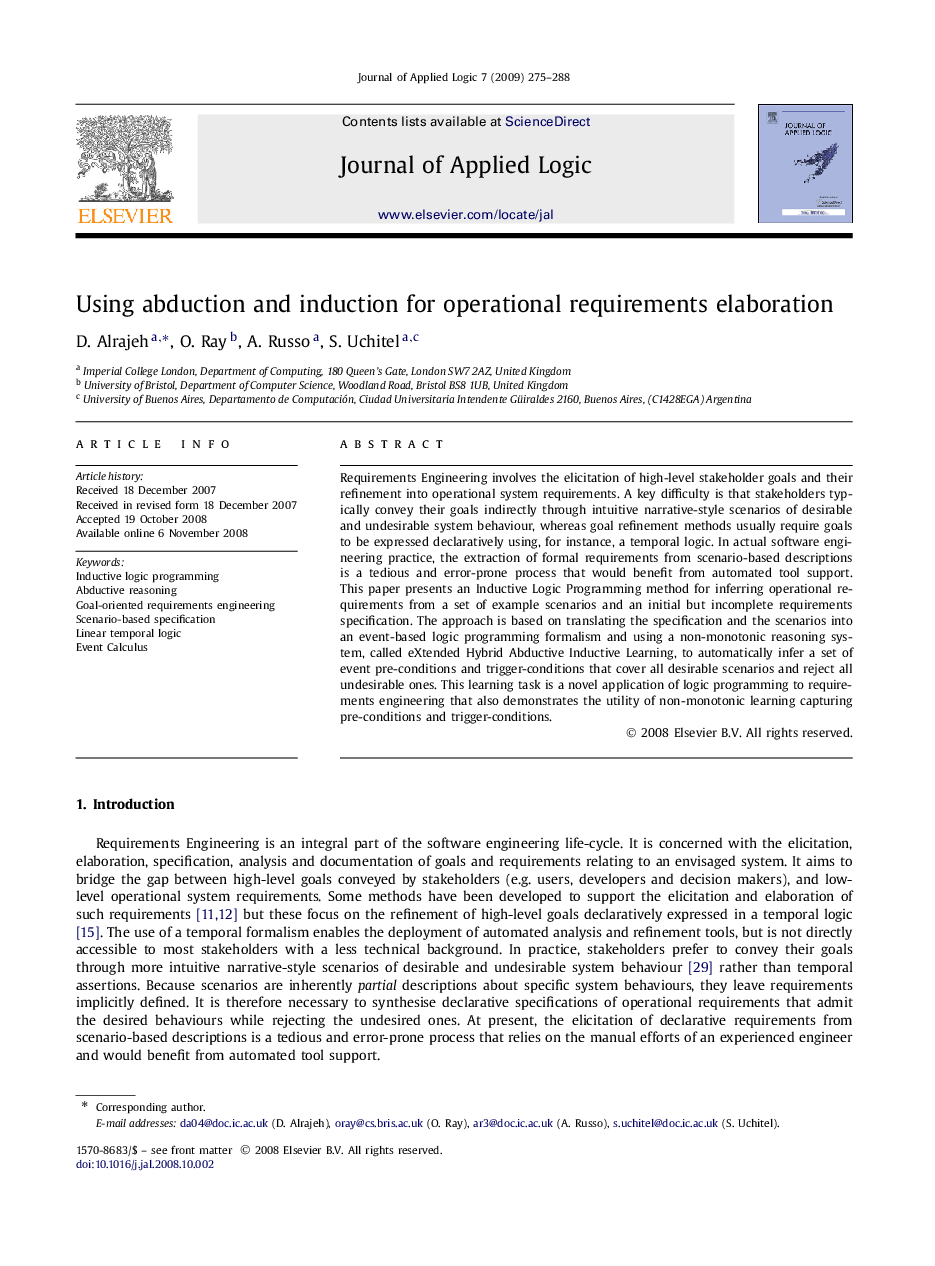| Article ID | Journal | Published Year | Pages | File Type |
|---|---|---|---|---|
| 4663276 | Journal of Applied Logic | 2009 | 14 Pages |
Requirements Engineering involves the elicitation of high-level stakeholder goals and their refinement into operational system requirements. A key difficulty is that stakeholders typically convey their goals indirectly through intuitive narrative-style scenarios of desirable and undesirable system behaviour, whereas goal refinement methods usually require goals to be expressed declaratively using, for instance, a temporal logic. In actual software engineering practice, the extraction of formal requirements from scenario-based descriptions is a tedious and error-prone process that would benefit from automated tool support. This paper presents an Inductive Logic Programming method for inferring operational requirements from a set of example scenarios and an initial but incomplete requirements specification. The approach is based on translating the specification and the scenarios into an event-based logic programming formalism and using a non-monotonic reasoning system, called eXtended Hybrid Abductive Inductive Learning, to automatically infer a set of event pre-conditions and trigger-conditions that cover all desirable scenarios and reject all undesirable ones. This learning task is a novel application of logic programming to requirements engineering that also demonstrates the utility of non-monotonic learning capturing pre-conditions and trigger-conditions.
